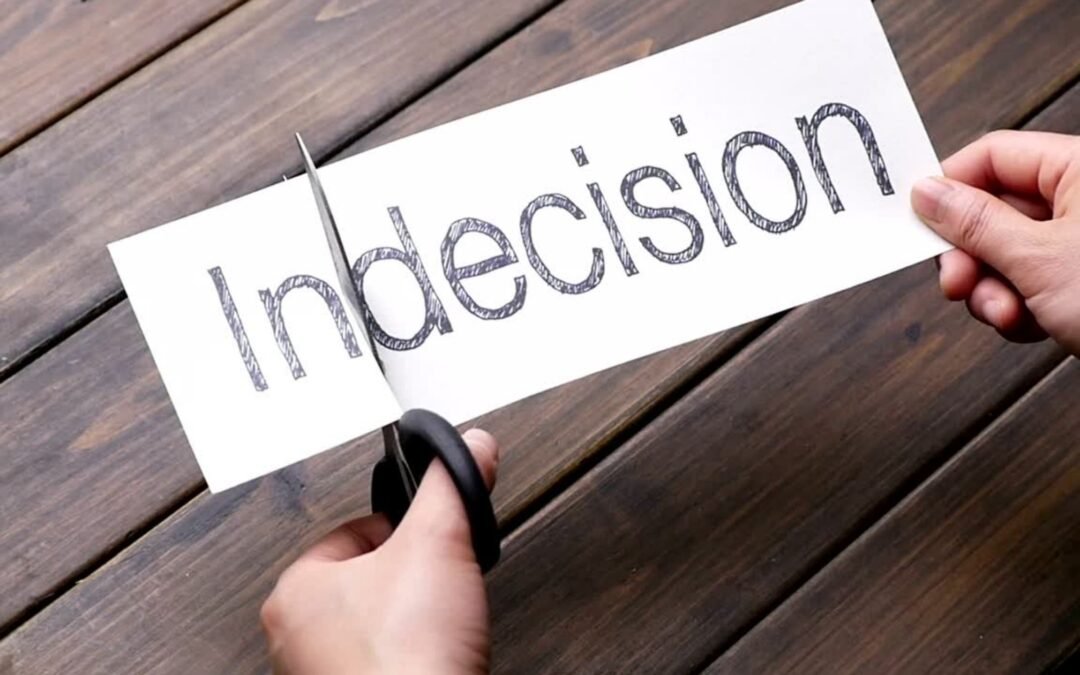Do you find yourself indecisive, whether it’s about major life choices or everyday decisions? Why we cannot make decisions easily?
Indecisiveness is a common struggle for people experiencing depression or anxiety due to various factors:
-
Lack of Energy: Depression often saps energy and motivation, making even simple decisions feel overwhelming and exhausting.
-
Negative Self-Perception: Depressed individuals may have low self-esteem and doubt their ability to make the right decisions, leading to indecision and hesitation.
-
Cognitive Impairment: Depression can impair cognitive function, including problem-solving and decision-making abilities, making it difficult to weigh options and come to a conclusion.
-
Fear of Failure: Depressed individuals may fear making the wrong decision or fear the consequences of their choices, leading to avoidance and indecision.
-
Emotional Turmoil: Depression is often accompanied by intense emotions such as sadness, anxiety, and hopelessness, which can cloud judgment and interfere with clear decision-making.
-
Overwhelm: Depressed individuals may feel overwhelmed by the demands of decision-making, especially when they are already struggling to cope with daily tasks and responsibilities.
It is noted that depression can significantly impact an individual’s ability to make decisions, leading to indecisiveness and uncertainty.
At times, our decision-making process relies solely on logical reasoning, weighing the pros and cons of each option. While this approach works for some, many of us struggle with prolonged indecisiveness because we overlook the role of our emotions and intuition.
5 Ways to Overcome Indecisiveness
Here are five practical ways to help you overcome indecisiveness, especially if you’re navigating depression:
- Embrace Self-Compassion: Stop judging yourself. Rather than judging yourself for your indecisiveness, it is always helpful to practice self-compassion. Understand that it’s okay to struggle with decision-making and treat yourself with kindness and understanding. If you keep judging yourself, it causes relentless negative emotions which worsens emotion wellness.
- Tune into Your Body: Instead of getting caught up in overthinking or analysis paralysis, pay attention to your body’s sensations. Your body often provides valuable cues about what decisions align with your true feelings and intuition. Close your eyes and find a comfortable position, spend 10 minutes to go into your body, visualize the feelings or images after you make any decision.
- Confront Your Fears: Indecisiveness is often caused by underlying fears or anxieties. Take the time to explore the root causes of your fears and address them. By facing your fears, you can gain clarity and confidence in your decision-making. Ask yourself : what will happen if I make this decision? What is the most terrible thing that I am afraid of? If I fail, what make it unacceptable?
- Take Breaks: When you’re feeling overwhelmed or paralyzed by indecision, give yourself permission to take breaks. Stepping away from the situation allows you to clear your mind and approach the decision with a fresh perspective. Whether you can take a cup of tea or practicing mindfulness, find activities that help you relax and recharge.
- Connect with Nature: Spending time in nature can have a profound impact on our mental well-being and decision-making abilities. Take advantage of the calming effects of nature by going for hikes, spending time in parks, or simply enjoying the outdoors. Nature will give you tremendous refreshing energy. Believe it!
By using these strategies into your life, you can gradually overcome indecisiveness and cultivate a greater sense of clarity and confidence in your decision-making. Remember to be patient with yourself and celebrate each step forward on your journey towards better mental health. If you need a mental health support to organize your thinking and feelings in order to make a major decision, it is highly recommended to seek a professional counsellor or psychotherapist.

